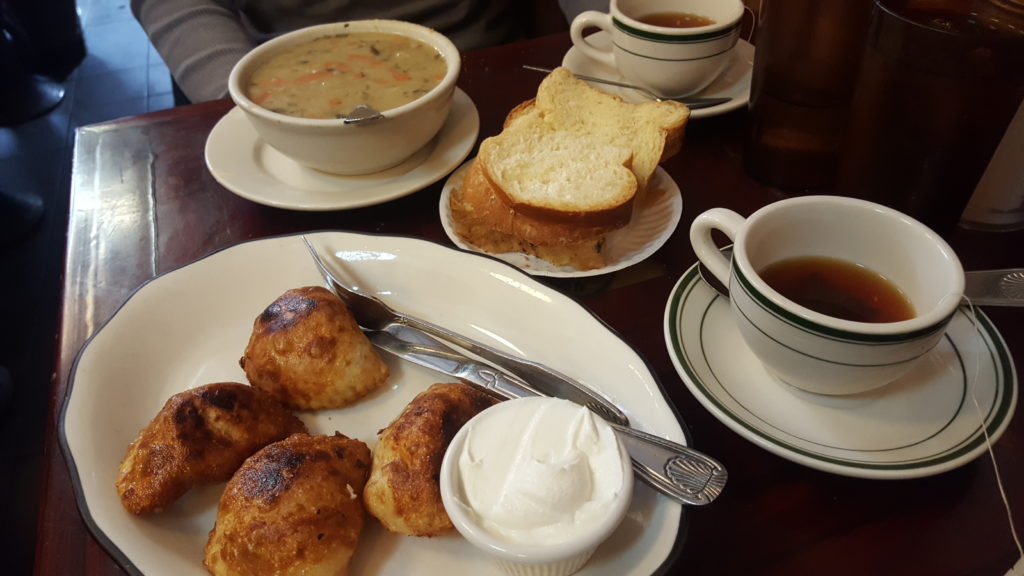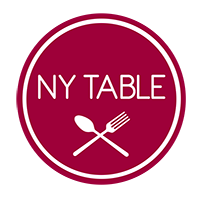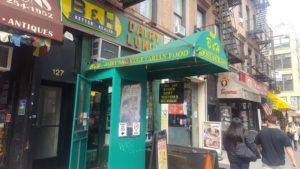By Emily Churchill
Ola Smigielska, 42, sits casually at a back table that’s pushed against the wall at B&H Dairy in the East Village. Her thick blonde hair is pulled into a tight ponytail, still tied back from the shift she just finished. She smiles slightly and looks past the cramped lunch-counter restaurant to the front window. With barely enough room for a person to walk between the countertop stools and the two-person tables, Zagat awards and kosher certifications scattered on the walls, and the air filled with the heady scents of soups, B&H exudes an air of timelessness.
“He used to watch me [at The Stage Diner] from the front chair here,” Smigielska says in a thick Polish accent, pointing out the front window.
‘He’ is Smigielska’s husband, Egyptian-born Fawzy Abdelwahed, 44, who bought B&H in 2005 with a partner– a new business owner watching the blonde waitress across the street, whom he eventually married.
When B&H opened in 1938, the East Village was a center of Eastern European life in Manhattan, particularly for Ukrainian and Polish immigrants, many of whom were Jewish. Recent tides of gentrification have turned it into an expensive area to live and work. According to the Jewish Data Bank, from 2002 to 2011, “the number of Jewish households in Lower Manhattan East… decreased 26%,” and there was a 30 percent decrease in the number of Jewish individuals in each household. The neighborhood has filled in with other New Yorkers.
Smigielska and Abdelwahed are not from prominent immigrant communities. The NYC Census for 2011 numbered the Egyptian community at only 0.6 percent of the city’s population; the Polish community was approximately 0.9 percent. Smigielska calls the fact that they found each other something of a miracle – but she was not going to be easily wooed by the stranger across the street.
“At the time I was finding the apartments to clean, I was thinking about going to school for English,” she says. “I wasn’t thinking about boyfriend!”
A friendship soon blossomed. Smigielska attributes her language skills to Abdelwahed, who she says taught her patiently – and continues to do so. After years of friendship, the pair started dating, and quickly became married. They currently live in Queens with Abdelwahed’s son Sherif, 14.
Together, they own B&H Dairy, the last Jewish restaurant in the East Village, despite the fact that neither of them is Jewish. It is one of the oldest kosher lunch counters left in the city, serving kosher vegetarian Eastern European food that has barely changed over the years – a point of pride for the current owners. The kosher certification is one that anyone can receive following an application and review of the food and cooking processes. If the food is found to be compliant, the certification is issued and a rabbi will regularly visit to ensure the kosher upkeep.
“We have visitors that are 57 or 58 years old, come and say they used to spin on the stools as children,” says Smigielska. “There is not too much places open like this now.”
Customer Meredith Eisgrau, 46, a field operator for the tech delivery company Enjoy Inc., appreciates the uniqueness of this tiny, old-fashioned joint. She recalls her first impression, saying, “One day, I notice this sweet bustling little lunch counter that was a complete time warp!”
Following that first sighting, Eisgrau became a regular, and has eaten at B&H for about 20 years. She praises the great prices and “damn good” food, but particularly loves B&H for its constancy.
“[B&H] became a true love story of the neighborhood,” Eisgrau says. “Same faces still [go] there. Same faces still working there. It’s like a piece of the city’s history itself.”
According to Smigielska, the prior owners insisted that nothing be removed from the menu, and only the very occasional item could be added. Though she would not go into particulars of the agreement, Smigielska says that the old owners wanted to make sure that the new owners would maintain the traditional kosher fare. In Smigielska’s time with B&H, the only addition has been a cold vegetable soup.
“People will come in and say, ‘Wow, the borscht, or the matzo ball soup, is still the same,” says Smigielska.
In her time at the restaurant, she has tried to recreate old recipes that were casualties of temporary food shortages and other factors, such as a vegetarian chopped liver from a factory that no longer exists. She does this at the request and with the help of old returning customers. The menu today lists such Eastern European staples as knish, pierogi and blintzes. Everything is served with the restaurant’s pride: homemade slices of fluffy, buttery challah. There’s a constant fresh-baked supply from the back kitchen, wrapped precisely in wax paper and stacked behind the cash register under a plastic menorah, waiting to be sliced up for each order.

B&H boasts such Eastern European kosher fare such as pierogi and lentil soup, all served with a side of thick challah bread. Photo: Emily Churchill.
According to Frankie Shay, 27, a Williamsburg resident who works in wholesale for an English fashion company, the draw of B&H is the care and tradition that exists within its walls.
“It’s just so old school New York,” says Shay. “It’s kind of bare. It’s basically just a counter and some tables. I like that it’s super traditional.”
Shay first came to B&H with her Jewish godfather, who lives on Long Island and likes to take her to traditional Jewish delis and lunch counters when he’s in the city. The first time she was at B&H, Shay ordered matzo ball soup and a blueberry blintz, which she described simply as “great.”
Shay hopes to continue to visit B & H with friends and family in the future, but she worries that the East Village is changing so much, due to rising rent prices, that small restaurants and stores are being driven away.
B&H currently has a lease until 2022. When asked about concerns about being pushed out, Smigielska shrugs dismissively.
“Economy is up and down, but that’s same as everywhere,” she says, going on to discuss how the support of the longtime and new B&H customers has given her faith in the longevity of the restaurant.
“I like preserving this place,” she says. “As long as I can do it, I’ll do it.”
She stares off over the counter, through the front glass windows, for a moment. Then she starts chuckling.
“When I retire, I think I’ll move into the kitchen.”
Tags: b&H, challah, dairy, eat village, Food, kosher, Manhattan, traditional, vegetarian

Your Comments